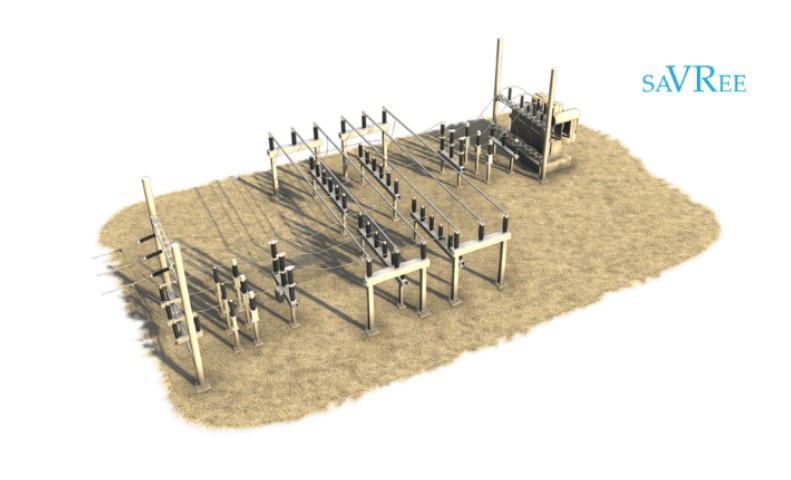
The Future of Engineering Training in the Power Engineering Industry
The power engineering industry is essential in modern society because it supplies the energy required to drive economies, maintain communities, and develop technologies. The energy sector requires a task force with contemporary experience as the energy system evolves with the advent of smart grids, advanced power plants, and renewable sources. Even though they worked well in the past, traditional training approaches are insufficient to handle the complexity of today’s problems.
Training approaches must take into account stability objectives, digital advances, and quickly evolving technology in order to educate engineers for the future. Platforms like saVRee, known for their interactive and accessible online learning solutions, are leading this change. Their special courses, including power engineering courses, are reshaping how engineers learn and contribute to the future of energy.
Changing Scenario of Power Engineering
Power engineering has always been a dynamic discipline, but the speed of change has increased in recent years. Many factors are affecting the future of the field:
Integration of Renewable Energy
As fossil fuels are being replaced by solar, wind, and hydroelectric power, engineers are better able to comprehend energy storage, grid balance, and hybrid systems.
Smart Grid and Digitization
Smart grid technology demands automation, IOT integration, and knowledge of advanced monitoring systems. Engineers must be suited to work with data-powered, decentralized energy systems.
Environmental Rules
Strict environmental standards are pushing companies to adopt more durable and efficient energy production methods.
Global Energy Demand
Because of urbanization and population increase, there is a greater need than ever for clean, reliable power. Engineers should be ready to design and operate the systems in order to continuously address this need.
These modifications emphasize the value of cutting-edge teaching strategies that equip engineers to tackle the energy concerns of the future.
Why Traditional Training Is No Longer Enough
In the past, textbooks, lectures in class, and punctual lab sessions were frequently used in power engineering education. Although these methods offered theoretical understanding, they had drawbacks:
Absence of real-time visualization: The operation of turbines, generators, and transmission systems under various conditions cannot be adequately represented by stable diagrams.
Restricted access: Not all students have access to high-quality labs and equipment because they are costly.
Slow adaptation: Graduates of traditional schools are sometimes unprepared for new technologies since they frequently lag behind industry advancements.
Modern, adaptable, and more appealing methods of teaching engineering are therefore in more demand.
Digital Change in Power Engineering Training
The future of power engineering education is digital. Training is moving towards online platforms that take advantage of video, simulation, and interactive 3D models. This change is inspired by many benefits:
- Interactive Learning
Nearly every component can rotate, break down, and detect other components thanks to interactive 3D model engineering. Complex systems like heat exchangers, generators, and gas turbines are simple to comprehend at this level of involvement.
- Flexibility and Availability
Geographical limitations are removed with online training. World-class resources are available to engineers and students everywhere, negating the need for physical labs or in-person instruction.
- Economical and Scalable
A single course can train hundreds of workers, saving money on equipment, travel, and instructor-led sessions.
- Real-World Application
Digital courses can simulate real-world scenarios such as system failures or load changes, allowing learners to get practical experience without risk.
- Constant Update
Online courses, as opposed to textbooks, can be updated often to incorporate the newest methods and business practices.
saVRee’s Role in Power Engineering Training
saVRee is a pioneer in technical and engineering e-learning. By combining high-quality videos, interactive 3D models, and specialist-led instructions, saVRee makes sure learners not only understand the theoretical knowledge but also understand its real-world application.
The power engineering course introduced by saVRee is designed to meet the specific requirements of today’s energy industry. It incorporates essential subjects such as:
-
- Power plant system and operation
- Renewable energy integration
- Electrical machines and equipment
- Industrial energy efficiency
- Security and troubleshooting in the power system
saVRee can visually convert abstract engineering concepts into attractive lessons so that learners can interact with them. Whether you are preparing for a career in energy or a professional looking to upskill, saVRee’s courses provide solutions prepared for the future.
The Benefits of Online Power Engineering Courses
For learners and organizations, investing in modern training solutions provides many major benefits:
Skill enhancement: Get practical knowledge of systems and processes that are directly applied to the workplace.
Global relevance: stay updated with international standards, renewable integration, and smart grid technology.
Career advancement: Possessing credentials from reliable websites, like saVRee, can improve job opportunities.
Organizational development: Companies can ensure that their staff members are informed, obedient, and equipped to handle new tasks.
The Future Outlook: AR, VR, and Beyond
The future of engineering training in the power industry is beyond online courses and videos. Digital advancements such as Virtual Reality and Augmented Reality will enhance learning for sure. Imagine engineers managing a control system, navigating a simulated power plant, or diagnosing equipment in a secure, realistic setting.
Artificial Intelligence (AI) will adopt content, more personalized and adapt materials to the areas of speed and difficulty of each learner. saVRee’s constant attention to innovation ensures that learners will always have access to the latest progress in training technology.
Conclusion
The future of the power industry lies in engineering education, which is digital, interactive, and widely available. Engineers need to be updated with the latest developments as the industry changes with stability, smart grids, and renewable energy. Traditional training techniques are no longer enough.
Engineer learning is undergoing a revolution thanks to platforms like saVRee, which provide flexible, reasonably priced, and highly interactive solutions. Students may equip themselves for the opportunities and difficulties of the energy environment of the future with tools like power engineering courses.
Modern society will always revolve around power engineering, and engineers who receive the proper training will be equipped to spearhead innovation and build a sustainable energy future.